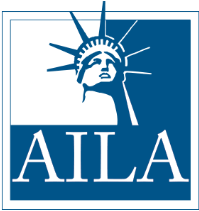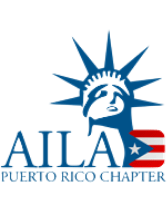When Is Extreme Hardship Considered in Immigration Cases?
 Immigrants planning to come to the United States or who are already in the country may face various issues that may affect their legal status. When applying for a visa or Green Card, a person may be determined to be inadmissible due to factors such as unlawful presence in the United States, criminal convictions, or health concerns. However, waivers of inadmissibility may be available in certain situations, and one factor considered when deciding whether to grant these waivers involves “extreme hardship” for one or more of a person’s family members. It is important to understand what is considered to be extreme hardship, and immigrants can work with an attorney to provide the required information showing that they meet this standard.
Immigrants planning to come to the United States or who are already in the country may face various issues that may affect their legal status. When applying for a visa or Green Card, a person may be determined to be inadmissible due to factors such as unlawful presence in the United States, criminal convictions, or health concerns. However, waivers of inadmissibility may be available in certain situations, and one factor considered when deciding whether to grant these waivers involves “extreme hardship” for one or more of a person’s family members. It is important to understand what is considered to be extreme hardship, and immigrants can work with an attorney to provide the required information showing that they meet this standard.
Factors Considered When Evaluating Hardship
Immigration officials will generally be looking to protect the interests of people who are authorized to live in the United States, including U.S. citizens or lawful permanent residents. If a person can show that their deportation or the refusal to admit them to the United States would cause hardship for a qualifying relative (their spouse, child, or parent) who is a citizen or Green Card holder, they may qualify for a waiver of inadmissibility.
There are multiple factors that immigration officials will consider when addressing hardship. These factors may be considered both individually and cumulatively to determine whether they rise to the level of extreme hardship. Applicable factors include:
- Family ties - If a qualifying relative is forced to leave the United States along with an immigrant, or if they are separated from the immigrant, they may experience multiple issues related to their family relationships. These may include being required to move to a country where they do not have any existing family relationships, or a qualifying relative may be left behind in the United States and required to assume responsibility as a caregiver for other family members.
- Social and cultural issues - A qualifying relative may face a variety of difficulties if they are forced to relocate to another country. These may include the possibility of persecution or discrimination, being penalized for living in the United States or having Western values, being ostracized based on factors such as gender or sexual orientation, struggling to adjust to living in a country where they do not know the local language, or a lack of educational opportunities.
- Economic concerns - The forced relocation of a qualifying relative or the separation from an immigrant who is deported could lead to multiple types of financial losses. These may include difficulty finding employment in a different country, losses due to the sale of a home or business in the United States, decreased standards of living, or increased costs of education or care for children or other family members.
- Health-related issues - A qualifying relative may experience a number of issues that may affect their physical or psychological health, and factors such as the availability of medical care in another country may be considered.
- Conditions in another country - Safety concerns that may affect family members who are required to leave the United States may be considered, such as violence, crime, political unrest, or environmental catastrophes.
Contact Our Orange County Waivers of Inadmissibility Attorneys
If you or a loved one are facing deportation or are concerned about your ability to qualify for a visa or Green Card due to inadmissibility issues, Vasquez Law Firm, PLLC can help you determine whether you qualify for a waiver of inadmissibility based on extreme hardship. We will work with you to file the correct documents and provide the necessary evidence, and we will fight to make sure your family will be able to continue living together in the United States. Contact our Orlando visa and Green Card lawyers at 407-955-5000 to schedule your free consultation.
Sources:
https://www.uscis.gov/policy-manual/volume-9-part-b-chapter-5
https://uscode.house.gov/view.xhtml?req=granuleid:USC-prelim-title8-section1182&num=0&edition=prelim














